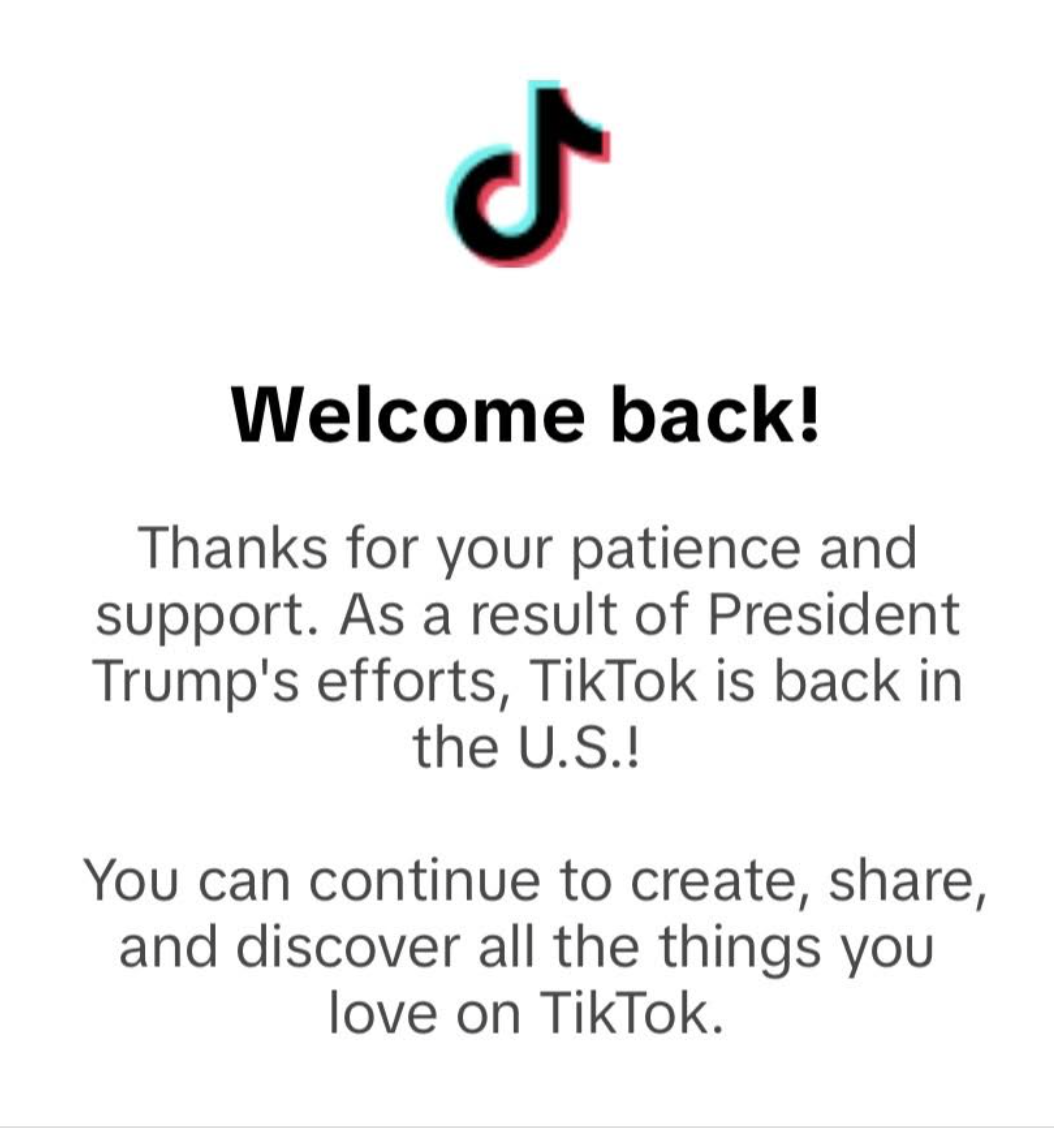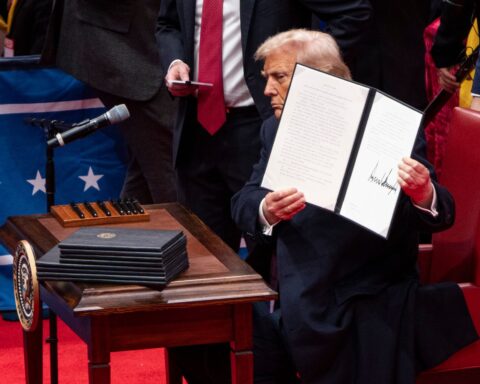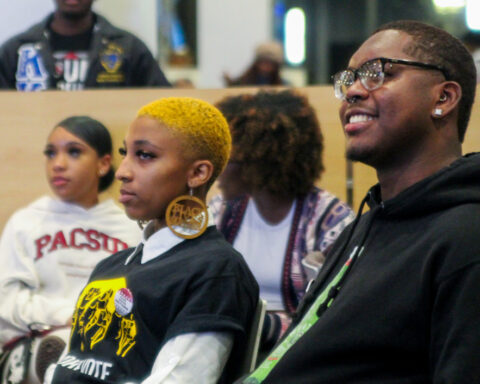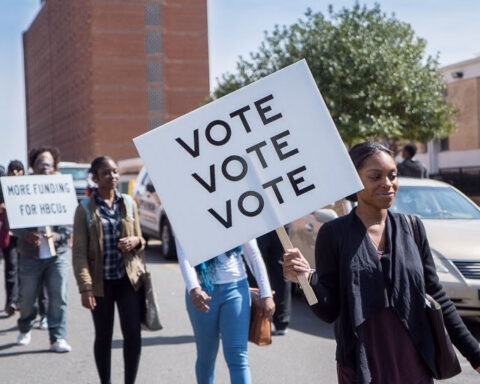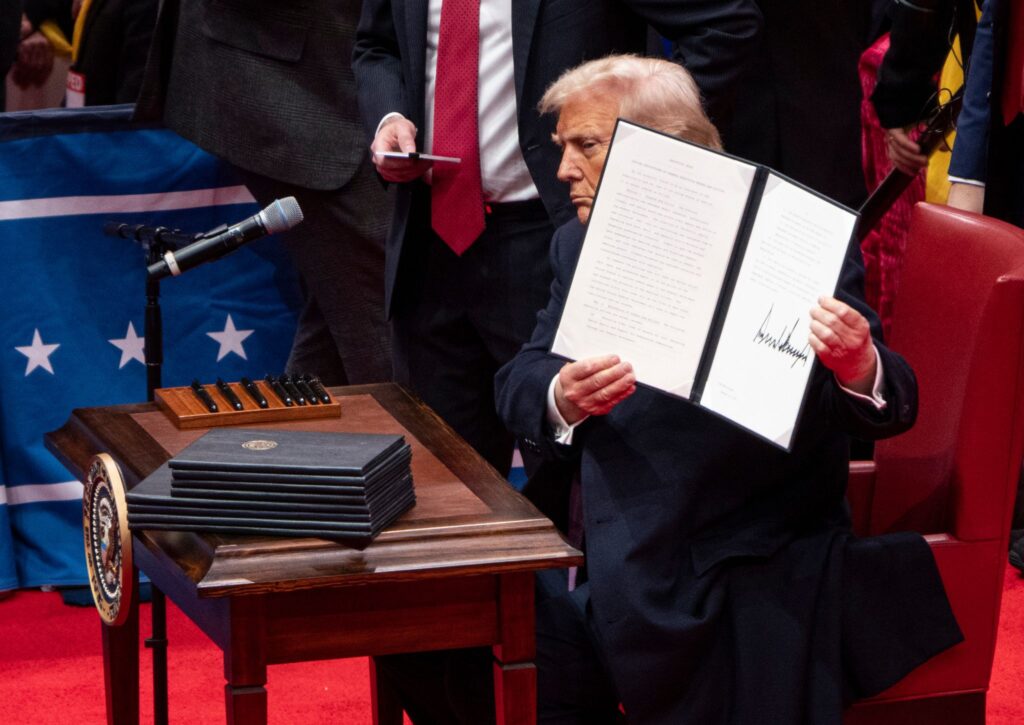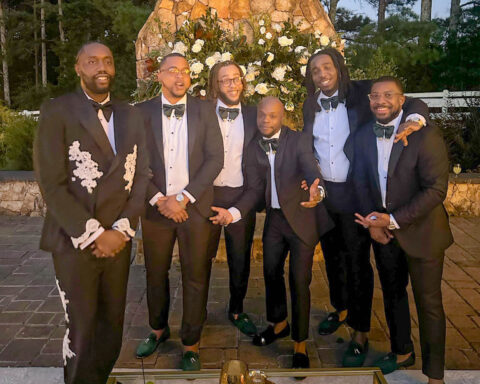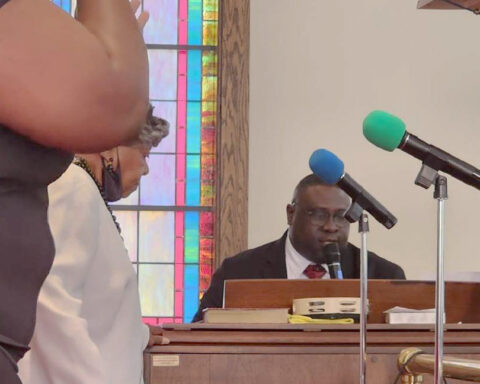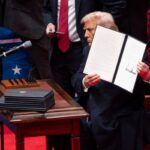TikTok, the popular social media app, made a less than 24 hour return after being banned in the United States late on the night of Jan. 18.
The app has been up and running for several days despite legislation banning the app. The bill, which required that the Chinese parent company of TikTok, ByteDance, be sold to a company in the United States, passed in the House with a 352-65 vote and the Senate with a 79-18 vote. It was then signed by President Joe Biden. The Supreme Court unanimously upheld the legislation. However, the app is only accessible for those that haven’t deleted the app from their devices and cannot be downloaded from the App Store or Google Play Store.
The TikTok ban was originally proposed by President Donald Trump in an August 2020 executive order because of concerns for “national security, foreign policy, and economy of the United States.”
Because of concerns over China’s control over communication companies, the app was banned from government-issued devices in December 2022 by the Senate.
The app returned after President Donald Trump, reversing his stance of TikTok, promised to provide an extension before enforcing the ban after his inauguration the next day in a post on Truth Social on Jan. 19. He also promised to remove liability fines for companies that continue to service the app.
After Trump’s swearing-in, he signed an executive order which provides ByteDance an additional 75-day period to take the necessary actions to overturn the ban. Additionally, as promised, the order stated, “The Department of Justice shall not take any action to enforce the Act or impose any penalties against any entity for any conduct that occurred during the above-specified period or any period prior to the issuance of this order.”
TikTok, a social media app for lip-syncing, dancing and various forms of content creation, reached the United States in 2018, after being merged with popular lip-syncing app, Musical.ly. The app’s popularity surged among teen and young adults in 2020 during the COVID-19 pandemic. In the last seven years, TikTok has become one of the most popular social media apps in the United States, reaching over 170 million users, about half the United States population.
Gabriel Cruz, assistant professor at N.C. Central University and content creator on TikTok, said that the app helps him keep up to date on pop culture, which informs his teaching as a media studies professor.
“I use [TikTok] to be aware of what’s going on,” Cruz said. “As someone who engages with young people … in order to be an effective educator and communicator, I need to be aware.”
Posting on the app has also helped him be concise while teaching.
“If you can explain an idea in less than three minutes, then you’re doing good.”
According to Cruz, having a strong social network and a large TikTok following of 163,000 led to a publisher’s interest in publishing his book, “Latinidad, Identity Formation, and the Mass Media Landscape.” He is currently working on another book, also being published through connections made on TikTok.
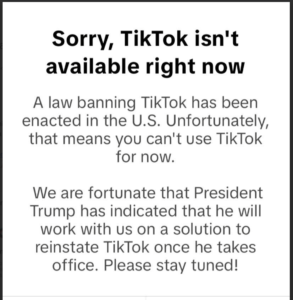
When TikTok was banned late Jan. 18, the announcement user’s received on the app explained that it was now banned and that TikTok is “fortunate that President Trump has indicated that he will work with us on a solution to reinstate TikTok once he takes office.”
However, the initial message received by users stated that TikTok was “working to restore our service in the U.S. as soon as possible,” and did not
mention Trump.
Cruz claims it was all “pro-Trump theatre.”
Thousands of N.C. Central University students said they were disappointed when the app was banned on Fizz, a student forum app.
Bryce Gowan, senior business marketing student, said that TikTok has helped foster a sense of unity online.
“The main media would say the world is divided, but when you get on TikTok and social media apps, we all dance to the same songs. We all have a collective. Are we really divided in the broad aspect of the world … if we all enjoy the same thing?” Gowan said.
In addition to TikTok, six other ByteDance-owned companies were banned, including CapCut, a popular video editing app.
Gowan, who also works at NCCU’s Recreation and Wellness Center, said that they rely on CapCut to create videos to advertise the center.
“I kind of was getting the hang of the tool. It was [more simple]. It was easy to do. For that to go away, it was like ‘Wow I have to learn something totally new,’” Gowan said.
Jalynn Woods, mass communications senior and Gowan’s co-worker, said that she wasn’t “devastated” over the TikTok ban, but felt that if CapCut goes dark, “it will put a damper on how quick we produce our content.”
Although TikTok and CapCut are still functioning for those that have the app on their devices, the fate of ByteDance-owned apps in the United States is currently unclear.

